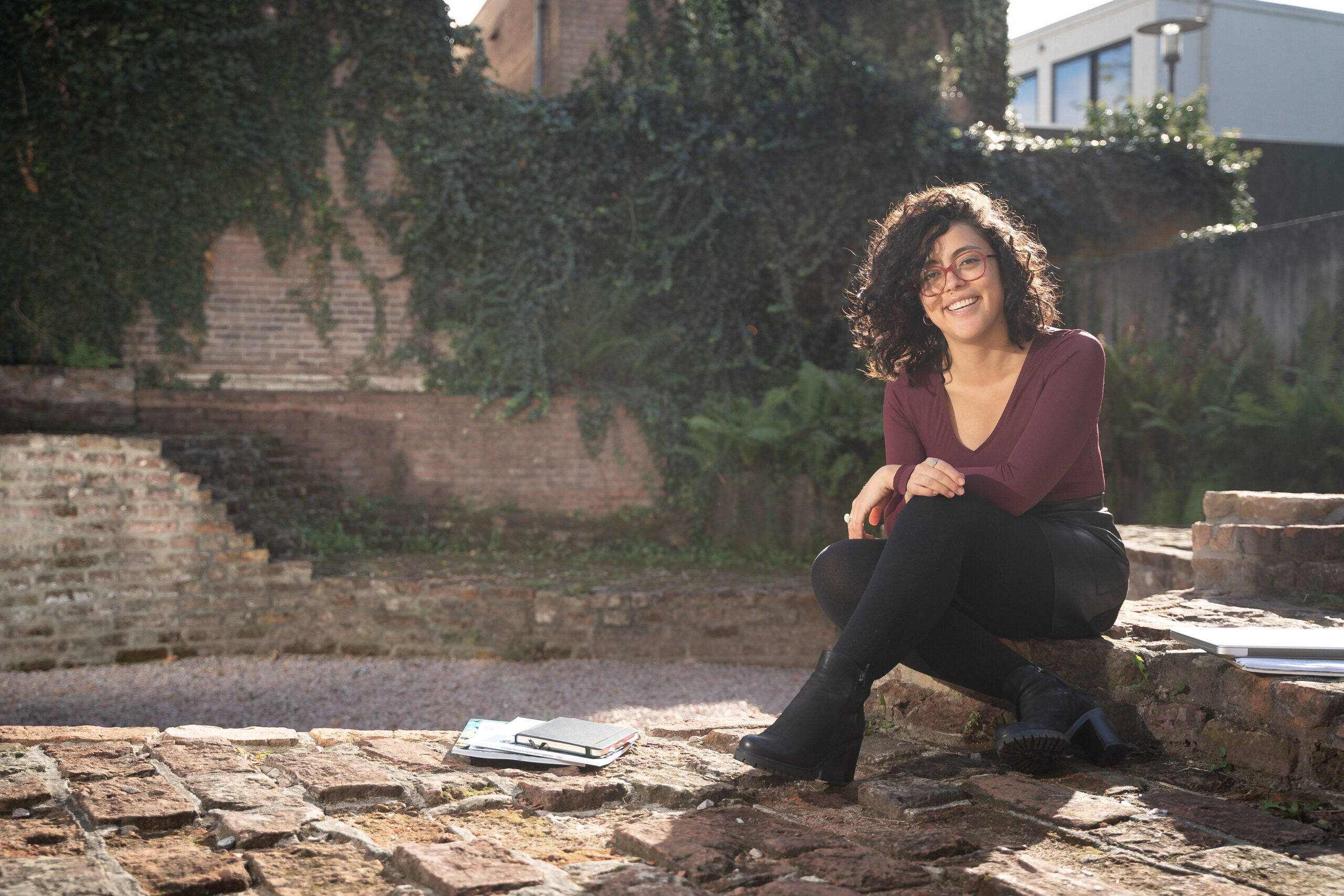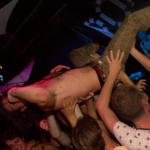‘Who fancies a six-month internship in a village in the middle of nowhere, doing research on shrinking regions?’ Daniela Chavarria (30) jumped at the idea, and so the Colombian MSc student of Development and Rural Innovation set off in August 2019 for the southern Italian village of Frigento to do an internship at Kinesis, a joint research project on shrinking regions run by the Group for European Development (a foundation) and the University of Naples L’Orientale.
‘Young people leave villages like Frigento and move to urban centres. The rural villages shrink and their population ages. As a result, most of the development and innovation happens in urban areas, which further propels the urbanization and shrinkage processes. Together with my supervisors I wanted to research how you can revitalize a village like Frigento.’
For a shrinking village, Frigento was very busy and lively when Chavarria arrived there. ‘Entire families had come back to the village for the holidays to visit the grandparents. But when I started talking to the people who actually live there, they were very negative. “It is lively now, but just wait until September; then it will be very sad”, they told me, and “you will probably get depressed. Why do you want to be here?”
The village as lab
Chavarria soon saw where that negative attitude comes from: in August there were 6000 people in Frigento, and in September only 300. ‘Imagine what that means for the social fabric of a community,’ says Chavarria. ‘Every person who goes away leaves a hole in that fabric. At some point, there is no cohesion left. But that social fabric is vital for a community. You have to find a way to repair it, but how do you do that? That is what we were trying to figure out.’
Chavarria and the team launched a ‘social innovation lab’ in Frigento. ‘To put it simply, the community is the laboratory. You try out various interventions – whatever – and see what comes out of them. What helps—and what doesn’t help—to change and improve the social fabric? Our approach was to organize a series of workshops.’
Chavarria’s team started with a workshop on social cartography: mapping the problems the village was facing together with the community, and brainstorming to come up with solutions. ‘By discussing these problems, you can find a way to cooperate. You also get an impression of what’s going on in the community, which helps you know what other workshops are needed.’ That led to workshops about a range of topics, including culture and traditions, the relationships between different generations, recycling, and environmental problems. ‘While running the workshops, we realized how important an “outsider” is for a community. An outsider sees things that community members take for granted. In Frigento, people have their own dialect, they grow their own food, and they have traditions like making enough tomato paste for a whole year. For them that is normal, but for me as an outsider, it is incredible! Having me there talking to them helps them to see its value.’ The workshops also helped the Frigentesi to see each other in a new light. ‘At the end of these workshops we all just went to the cafe, grabbed a drink and chatted. People realized that they have neighbours and that you can do things together. This realization helps in restoring the social fabric. People started socializing and doing things together again.’
Erasmus grant
In Europe alone there are thousands of villages like Frigento. With the aim of revitalizing shrinking regions across Europe, Kinesis wrote a proposal for an Erasmus grant so they could start an exchange programme. Chavarria: ‘The proposal was rejected because the project in Frigento was too local: it wouldn’t have much of an impact if students could only visit Frigento.’
In January 2020, Chavarria came back to Wageningen, where internship supervisor Bettina Bok put her in touch with an expertise network on the depopulation of the north of the Netherlands (Kennisnetwerk Krimp Noord Nederland). ‘We found out that there are similar projects in the Netherlands, Germany, Spain and Estonia, all working on shrinking villages.’ So the projects joined forces and became affiliates of Kinesis. ‘We wrote a joint proposal for an Erasmus grant for an exchange program in shrinking regions in all the countries in the expanded Kinesis network.’ The grant was awarded: one million euros to set up an exchange programme over three years. ‘The EU was already concerned about this issue. Their strategy is to enhance local development. Our project does just that, and we’ve got European students working on it. So we ticked all the right boxes for a grant.’
Chavarria will play an important role in setting up the new exchange programme. ‘The plan is for exchange students with an academic background to set up these social innovation labs in the participating countries. The first exchanges will be in 20 villages near Frigento: that will be the pilot. After that, the exchanges will expand to rural villages in other Kinesis countries as well.’
The first exchanges are due to start in May 2021.




